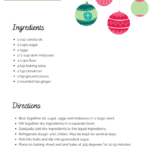I hate diets…. for so many reasons. That might sound like a strong statement. Let me clarify, I do like the DASH diet, which is based on scientific evidence and stands for Dietary Approached to Stop Hypertension. I like the Mediterranean Diet too. The ones I hate are all the diets with rigid rules that you can lose weight on in the short run (because your calories are cut down), but you can’t actually live on.
Now, what I do like (and help people with all the time) is using food as medicine. I know that eating mostly healthy foods, that you enjoy, and limited amounts of empty calorie foods, can help you lower your glucose, blood pressure, cholesterol, triglycerides, and cancer risk. But the difference is that it is individualized to you and developed to include foods you like and strategies that work for you. There are no cheat days–because it’s not so rigid that you have to cheat. Indulging in a treat is allowed. You can live with this long term!
 5 Reasons Not to Go on a Diet
5 Reasons Not to Go on a Diet
Dieting actually leads to weight gain. As counterintuitive as it sounds, dieters are more likely to gain weight after the diet than non-dieters. Dieting (aka restricting), triggers an increase in stress hormones which is also linked to weight gain.
The rules and restrictions that come with diets have you ignoring and suppressing your body’s natural hunger cues. Over time, this can make you more vulnerable to binge eating and less intuitive about listening to your body’s internal hunger and fullness cues that help naturally regulate weight.
Dieting can slow down your metabolism. Restricting calorie intake can lead to weight loss, however, the drop is due more to a loss in metabolically active muscle mass than actual fat loss. By losing muscle, there is a decrease in the amount of energy the body needs to maintain its weight, meaning a slower metabolism.
A slow metabolism burns fewer calories at rest and therefore you have to eat less to avoid gaining weight.
Dieting often means numbers trump nutrition. When following a diet, you are often most concerned about calories or carbohydrates than anything else. This leads to eating foods based off a number rather than actual nutrition, and let’s face it, not all calories or carbs are created equal. A hundred calories of jelly beans isn’t the same as a hundred calories of Greek yogurt and fresh berries.
By just focusing on calories, you lose sight of the nutrition your body needs. However, eating a balanced diet takes into account the nutrition that is essential for regulating hormones, fighting diseases, managing cravings, and giving your body energy to thrive.
Dieting sets off a self-shaming cycle. Beyond the negative physical and health consequences, dieting can have a negative impact on your psychological health and well-being. You start your new plan feeling good and optimistic that these rules and restrictions will help you reach their goals. During the first week, you lose a few pounds and you are motivated this will continue.
Then you hit a plateau, the scale does not budge. You begin to feel frustrated that your weight is not changing as fast as promised or expected. This leads to feeling upset and maybe a little depressed, feelings of deprivation start to creep in and eventually you give up.
You eat something “off limits” from the diet rules, this leads to a binge followed by feelings of despair, shame, and frustration. These feelings lead back to the cycle of dieting -> deprivation -> overeating -> feelings of shame and unworthiness. Over time this cycle can be extremely detrimental to your mental and physical health and this is a big reason diets don’t work!
Dieting can lead to eating disorders and disordered eating. “Diets” have you depending on rules telling you what, when, and how much to eat. While this works for a short period of time, eventually you will fall off the diet. Falling off your diet intensifies the feelings of guilt and shame, which contributes to the cycle of restricting, purging, bingeing or excessive exercise. Over time this can develop into a serious eating disorder, leaving you with long term disordered eating habits. Other side effects of dieting include increased risk of depression, decrease in self-esteem, emotional distress and more weight gain.






Leave a Reply